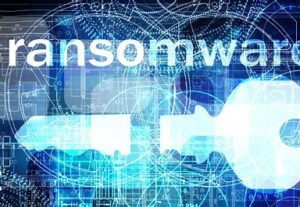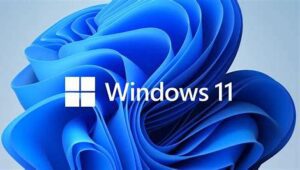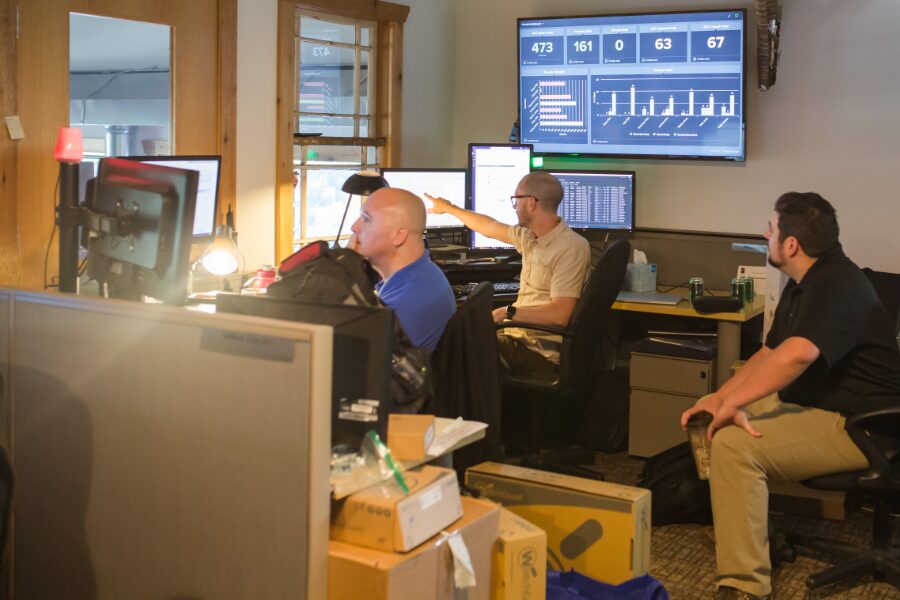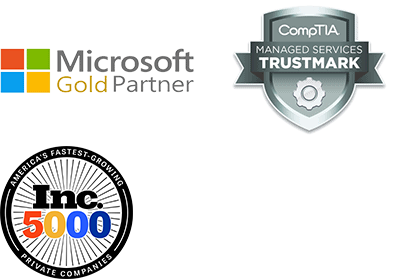A significant portion of the service Applied Tech provides is technical support for our clientele. You dial our number, talk to someone about your problem, and we attempt to fix it in a timely manner. But what else goes on in the NOC? What does our job entail? Who are you talking to on the other end of the phone?
You might not even know what “NOC” stands for: NOC is short for Network Operation Center. We are the IT help desk for all 160+ companies that utilize our services. Over 30 technicians are constantly in communication with one another, helping each other figure out issues we encounter, and teaching each other new solutions to new problems.
The NOC has three levels of technicians, each having a variety of responsibilities that make Applied Tech work like the well-oiled machine it is. A responsibility that we all share is troubleshooting problems from far away. Because many of our clients are more than 20 minutes away (some are in different states and countries), we all have to be proficient in remotely connecting to out-of-reach workstations and communicating with our clients. Being able to efficiently communicate over the phone and via email is a HUGE part of this job.
Level 1 techs (such as myself) serve as our “first line of defense.” We take calls as they roll in: we either immediately solve the problems presented or we create a case for the issue in our system and pass it off to a higher level technician. We also monitor the emails that come in via our help desk email account and sort them where they need to go. Keeping an eye on the email queue, or “dispatch,” as we call it, is very important, because if a server is down or another high priority issue makes itself known, we catch it and notify the entire NOC for immediate remediation. When on phones, the L1 techs strive for “First Contact Resolution (FCR),” where we try and solve problems ourselves without the need to pass off the call to another tech; this allows our clients to receive a more immediate resolution to their problem so they can get back to their work. It increases our efficiency, and yours!
Level 2 technicians deal with the cases that Level 1 technicians cannot address. L2 techs, on average, have a greater understanding of the more complex issues that arise in computers. They go through the slew of cases we receive from the help desk email account hourly, and pick up any new cases that have come along. L2s also create new users when companies hire on new people and disable profiles when people leave. Most importantly, L2s have a greater understanding of the issues that crop up in workstations. If a user is unable to work (email is down, a program is not working, etc.), an L2 is your best friend. To quote Melissa True, L2 Technician extraordinaire, “L2s are your workstation champions!”
L3s deal with the really intense, sometimes complex, necessary details of the companies we support, like firewalls and managing whole networks. If a company’s phones aren’t working or their internet mysteriously disappears, it’s an L3 who will be working on the case. L3s oversee planned network and system changes and upgrades, perform proactive maintenance on the various hardware we monitor (servers, switches, firewalls, and otherwise), and carry out a fair amount of high-level troubleshooting on software and hardware alike. Senior System Administrator (L3 Technician) Grant Stroobants contributes that L3s “oversee client networks and the ongoing maintenance [in the networks] and develop transition plans that meet their current and future business needs.”
There you have it! We are the people that our clients rely on for help desk support. Maybe you are currently one of our clients and you’ve talked to us many times. Maybe you are a future client and you could really use our services. Either way, Applied Tech is here to help!
More NOC adventures to come! Keep checking the blog for updates!




